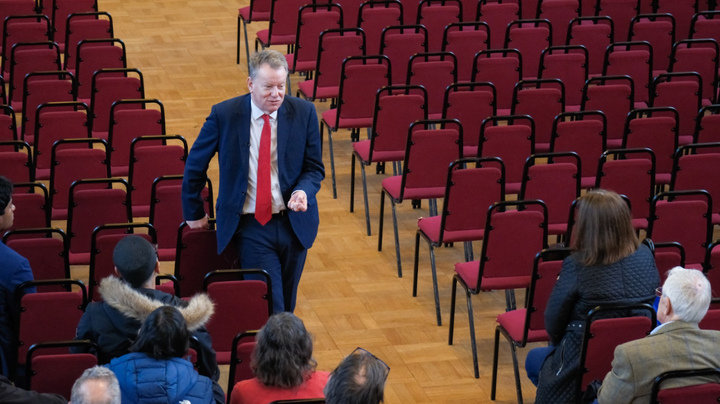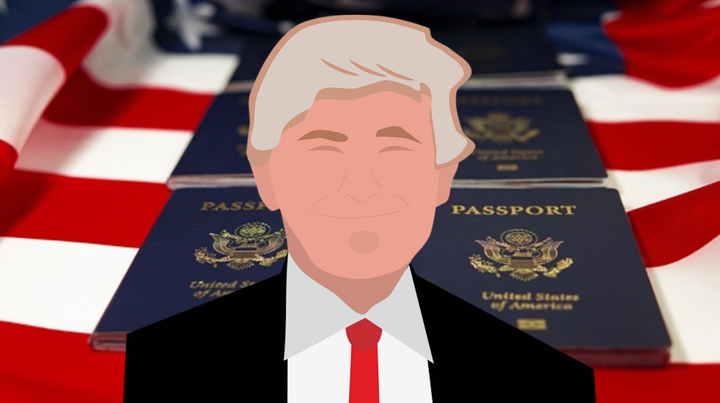The Perspective #04: April24

Labour’s Railway Reform
Juliette Hussey
Last week, Labour announced their plan of nationalisation of British railways in a plan to scrap contracts with private companies once contracts eventually expire by fully absorbing them into the public sector within their first term.
The announcement also comes alongside plans to establish a body named the public standards authority tasked with scrutinising and ensuring the efficiency of this national service.
Louise Haigh, shadow transport secretary - one of the most left wing remaining members of Starmer’s cabinet, who publicly maintains a close relationship with the unions, described the plan in a speech last week. She stated last week that ‘our railways have become a symbol of national decline’ labelling the current railway system and rising ticket prices as a testament to the current conservative government's inaction. Haigh has managed to preserve the more radical details of her nationalisation plan despite repeated lobbying pressing her to dilute it.
This moment had been labelled as the start of Labour’s more reformist economic policies in the lead up to the election after a series of policy turns. For example, in Starmer’s leadership campaigns, his promises included nationalism of the ‘big six’ British industries including railways. However, he quickly scrapped this idea in 2021 and this move away from nationalisation was further confirmed by Rachel Reeves in July 2022.
Until this point, the opposition has appeared more reticent about its plans as we face the likelihood of a Labour government and had come into criticism for this. Whether this indicates a more forthcoming and radical party in terms of policy promises is yet to be seen.
However, whilst nationalisation of rail was featured in both Labour manifestos of both 2017 and 2019, the idea of this plan being wholly Labour is not entirely the case. In fact, Johnson began the process of allowing contracts to expire with private companies when he nationalised northern rail. In this light, last week’s announcement appears to be simply building on this and more indicative of a response to recent disarray in the rail industry than a shift towards the left from Labour.
Yousaf in disarray
Shay Patel
The 29th April 2024 marked a day of disaster for the SNP with the Scottish First Minister Humza Yousaf being forced to resign from the post, sparking a leadership contest.
The 2021 Holyrood election saw the Scottish National Party gaining 63 seats out of a possible 129, (1 SNP MSP defected to the Alba Party) leaving them 2 seats short of a majority. This led to the SNP forming a power-sharing agreement with the Green Party, known as the Bute House Agreement. However, the first minister controversially ended this agreement in a U-turn (sounds familiar?) following his government’s decision to scrap climate targets and pause the prescription of puberty blockers for under-18s. Just 48 hours prior, he announced that he had no intention to end the agreement. Unsurprisingly, this led to the Scottish Conservatives proposing a motion of no confidence in Yousaf’s government, to which the Greens said that they would vote against Yousaf.
Yousaf had been branded as weak, incompetent and a poor leader. Only 3 days before he resigned, Yousaf said that he would ‘absolutely’ lead the SNP into the general election and into the 2026 Holyrood election.
In his resignation speech, he admitted having ‘clearly underestimated’ the hurt he had caused the Greens in ending the deal in the manner in which he did it. He concluded that the best way forward for the SNP would be for ‘someone else at the helm’.
His resignation came 13 months after Nicola Sturgeon’s, whose husband has just been arrested for embezzlement.
What next for the Scottish National Party after Humza’s tenure? Yousaf or Youseless?
Busy Blinken
Krish Chaddha
On the 24th of April, US Secretary of State Anthony Blinken arrived in China with a slew of tasks to accomplish.
Blinken claimed that ‘Russia would struggle to sustain its assualt on Ukraine without China’s support’, and that Beijing cannot improve relations with Europe if it is ‘supporting the greatest threat to European security since the Cold War.’ Consequently Blinken suggests further US intervention (measures in addition to the current sanctions on over 100 Chinese goods) if this is not satisfactorily resolved. This quasi ultimatum comes after China’s Foreign Minister, Wang Yi, had earlier in the trip warned the US to not ‘step on China’s red lines’. The issue of China sustaining Russia's military defence appears to still be unresolved.
Another key message Blinken delivered to President Xi was that the US had seen evidence of attempts by Beijing to ‘influence and arguably interfere’ in the imminent US elections, and that they are carefully looking into this. Xi reportedly assured Blinken that this would not happen.
In a greater show of cooperation, Blinken thanked Beijing for the efforts made to stop supplies of fentanyl from reaching the US. This increased cooperation, where both leaders consistently reiterate the importance of being partners rather than rivals, is the result of recent diplomacy efforts which came about due to heightened tensions in the Taiwan strait and South China Sea among other areas of disagreement.
Blinken also suggested that China's relations with Iran could be key in deescalating tensions in the Middle East.
Conservative Council Election Catastrophe
By Aditi Prashanth
While the month of May often represents themes of growth and success, the local elections have unfortunately posed as the complete antithesis for the Conservative Party. The party faced a significant setback, losing 356 councillors and retaining control of just 5 councils, landing them in third place. Meanwhile, Labour capitalised on this shift, gaining 944 councillors and securing 46 councils, while the Liberal Democrats maintained their hold on 10 councils.
The Conservatives also faced losses in several police commissioner posts they attempted to defend. This led to, in England, there being an 11-point swing from Conservative to Labour in these contests since 2021 — a shift comparable to the 9% swing seen in local ballot boxes.
Amid these losses, one glimmer of hope shone through for Rishi Sunak's party in Tees Valley — an area historically dominated by Labour. There, Conservative Ben Houchen narrowly retained the mayoral position. However, current polling indicates that Houchen's victory owes more to his personal popularity than to broader party support.
This pattern of electoral disappointment is becoming all too familiar for the Conservatives. From last year's local elections to various by-elections and now these results, the picture for Rishi Sunak appears consistently bleak. According to the BBC’s projected national share—an estimate of the nationwide vote, if all areas had local elections would result in the Conservatives being at just 25%. This figure not only marks a one-point drop from last year but also equals the record low set in 2013 and 1995.
Labour’s performance, while stronger, has also seen a slight decline, dropping a point from last year to 34%. This leaves their lead over the Conservatives unchanged at nine points, with Keir Starmer’s party still remaining short of the 38% achieved under Ed Miliband’s leadership in 2012.
As the Conservative Party navigates this challenging period, the prospect of a potential annihilation at the next general election becomes more prominent, making it crucial for them to reassess their strategies and reconnect with the electorate.




Comments ()